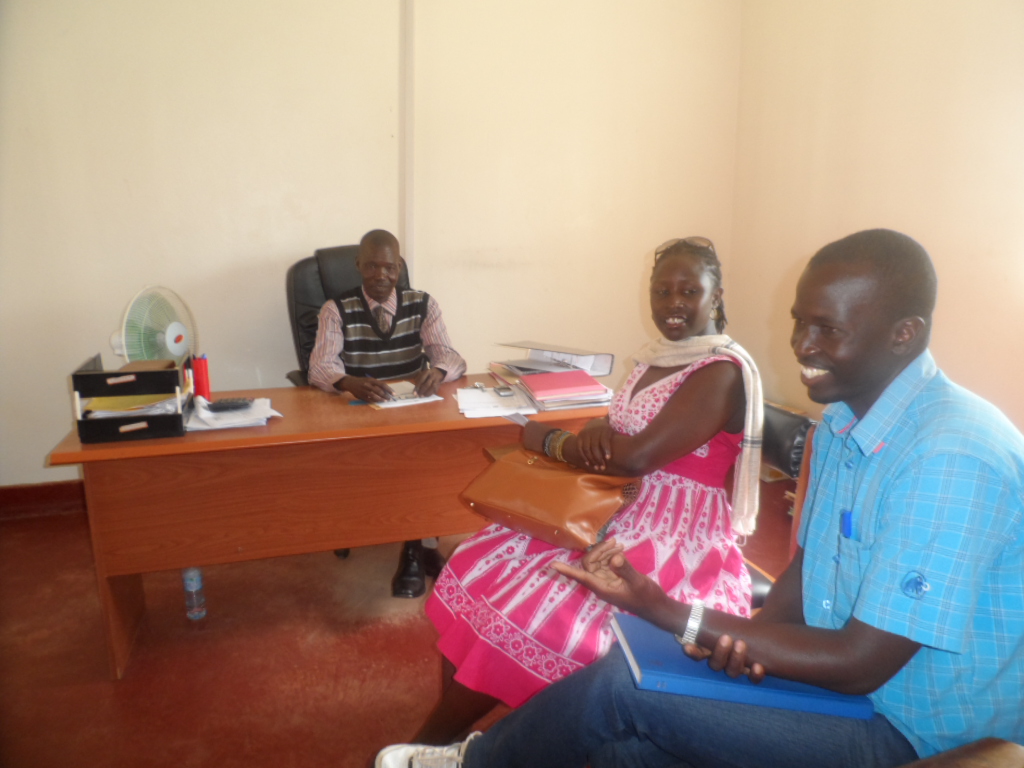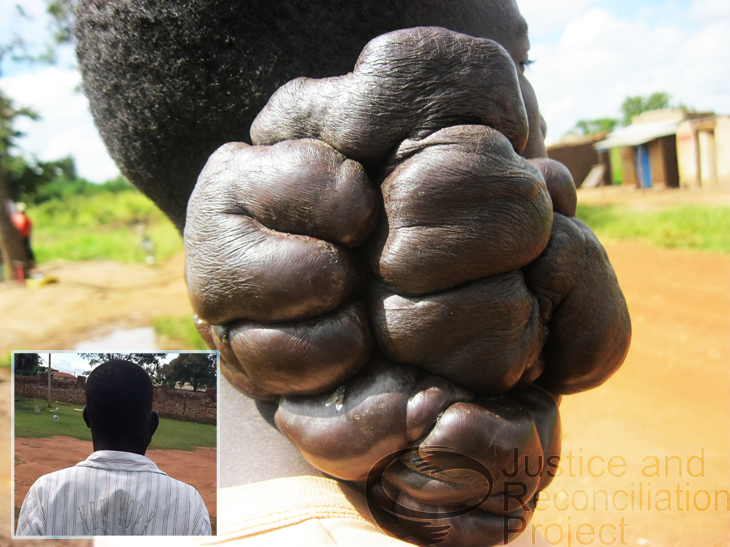In April 2013, JRP’s Community Mobilisation department team hit the road to West Nile, Acholi, Lango and Teso sub regions to disseminate information on and to mobilise selected schools for the second annual Transitional Justice Quiz Competition. In 2012, JRP initiated the Transitional Justice Quiz competition for young people in northern Uganda.
The TJ Quiz is an educational programme designed to connect youth from different parts of northern Uganda to build a critical mass around peace building with a special interest in transitional justice in an effort to harness the energy, imagination and initiative of northern Uganda’s youth in promoting a culture of peace. This initiative arose from the realisation that the intensity and impact of conflict on young people is often looked at from a secondary point of view yet young people in actual sense play very primary roles in either sustaining and/or ending a conflict. We at JRP therefore feel that this is a time for the young people in northern Uganda to start voicing and addressing the underlying impacts of the conflict on the younger generation including cross ethnic dimensions of the conflict as they become community leaders in peace building, reconciliation and post conflict reconstruction.
Under the theme ‘Across Ethnic Boundaries’, the 2013 quiz competitions will target the participation of 40 schools from across West Nile, Acholi, Lango and Teso sub regions. The schools have been selected based on their experiences during the conflict in northern Uganda. During the quiz process, the students across the region will get the opportunity to share the different experiences of young people during the conflict, get updated with ongoing TJ related developments at national level and suggest strategies to incorporate young people in ongoing accountability, reconciliation and healing processes.
The JRP team visited the office of the District Education Officers who helped in the selection of participating schools, made courtesy calls to the office of the Local Council Five chairpersons, district councillors for youth and the secretaries for education in all the districts visited. The head teachers for the respective schools were enthusiastic about the quiz competitions and requested JRP to do more sensitisation on TJ related issues to the school administration and the district officials. As noted by the DEO of Adjumani District and re-echoed by the head teacher of Balla S.S, “We have been hearing about transitional justice from a distance but have never got the chance to really understand what it is.” They urged that resources allowing, JRP should conduct dialogues in all the participating schools in order to bring everyone on board.
All the head teachers appreciated that working with young people requires a multi faceted approach with peace building being a central component and that, teachers alone cannot do it. Some schools like Mungula S.S lamented on how their school before the conflict was one of the giant schools to reckon with in the region but were greatly affected by the conflict as it was displaced and lost many of its students to death and abductions, some of whom are still missing up to date.
“It’s important to keep the youth busy with educative programmes like the TJ quiz competitions to avoid them from getting involved in irrelevant activities such as the now popular sports betting,” noted the hilarious head teacher of Adjumani S.S Mr Nobert Ben Oola. Though he had reservations on running programmes through competitions, he stressed sustainability of keeping the youth engaged and encouraged the JRP to continue with the programme even after the competitions have ended through dissemination of information.
JRP will conduct an orientation workshop for all the participating school patrons who will in turn organise schools dialogues and preparations for their school teams this month of May 2013. Within the second term of the secondary schools calendar, the competitions will kick off with sub regional competitions and the winners at sub regional level will compete for the regional title. The winners of the 2012 quiz competitions; Pope John Paul VI will have the opportunity to defend their title in more exciting competitions this year under the theme ‘Across Ethnic Boundaries’. I wish the participating schools all the best.
[AFG_gallery id=’48’]




